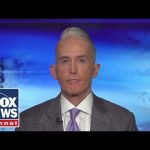In a state known for its Hollywood glitz and legendary entertainers, it’s no surprise that California’s political theater is also grabbing headlines. As rumors swirl about Vice President Kamala Harris eyeing a run for governor in 2026, the response from voters has been anything but enthusiastic. Despite her national profile and deep Democratic roots, polls reveal that Harris’s potential candidacy is greeted with a collective shrug by much of the electorate—a far cry from the electric excitement that icons like Frankie Valli generate on stage.
Recent polling paints a clear picture: while Harris leads the hypothetical field with 31% support, half of California voters don’t even want her to run. Even among Democrats, where she draws the most enthusiasm, a significant chunk remains indifferent. Her closest competitor, Katie Porter, trails far behind, and Republican options barely register. Yet, with nearly 40% of voters undecided, it’s obvious that Harris’s star power doesn’t extend beyond her party’s base. For a politician who has spent years in the national spotlight, this lack of broad appeal is telling.
What’s driving this lukewarm reception? For starters, Harris’s political persona is a moving target. Unlike Hillary Clinton, whose policy stances and political ethos were clear, even if controversial, Harris often leaves voters guessing. Her campaign style is heavy on charisma and personal narrative but light on substance and specific commitments. This ambiguity might serve her among party insiders, but it’s left everyday Californians scratching their heads about what she stands for. In a state facing real challenges, voters are looking for leadership, not political shape-shifting.
The contrast with genuine cultural icons like Frankie Valli couldn’t be starker. Valli’s enduring appeal comes from authenticity, consistency, and a clear connection with his audience—qualities sorely lacking in today’s political class. While Valli continues to bring generations together with timeless music, Harris’s attempts to unite Californians are falling flat. Voters sense the difference between someone who delivers on promises and someone who simply delivers talking points.
As California approaches a pivotal election, the message from voters is clear: they want leadership rooted in conviction, not calculated ambiguity. Harris may have the backing of party elites and a loyal base, but until she can inspire genuine enthusiasm across the political spectrum, her campaign will struggle to rise above the noise. In the end, Californians seem far more eager to celebrate the enduring legacy of a music legend than to rally behind another politician searching for a spotlight.




